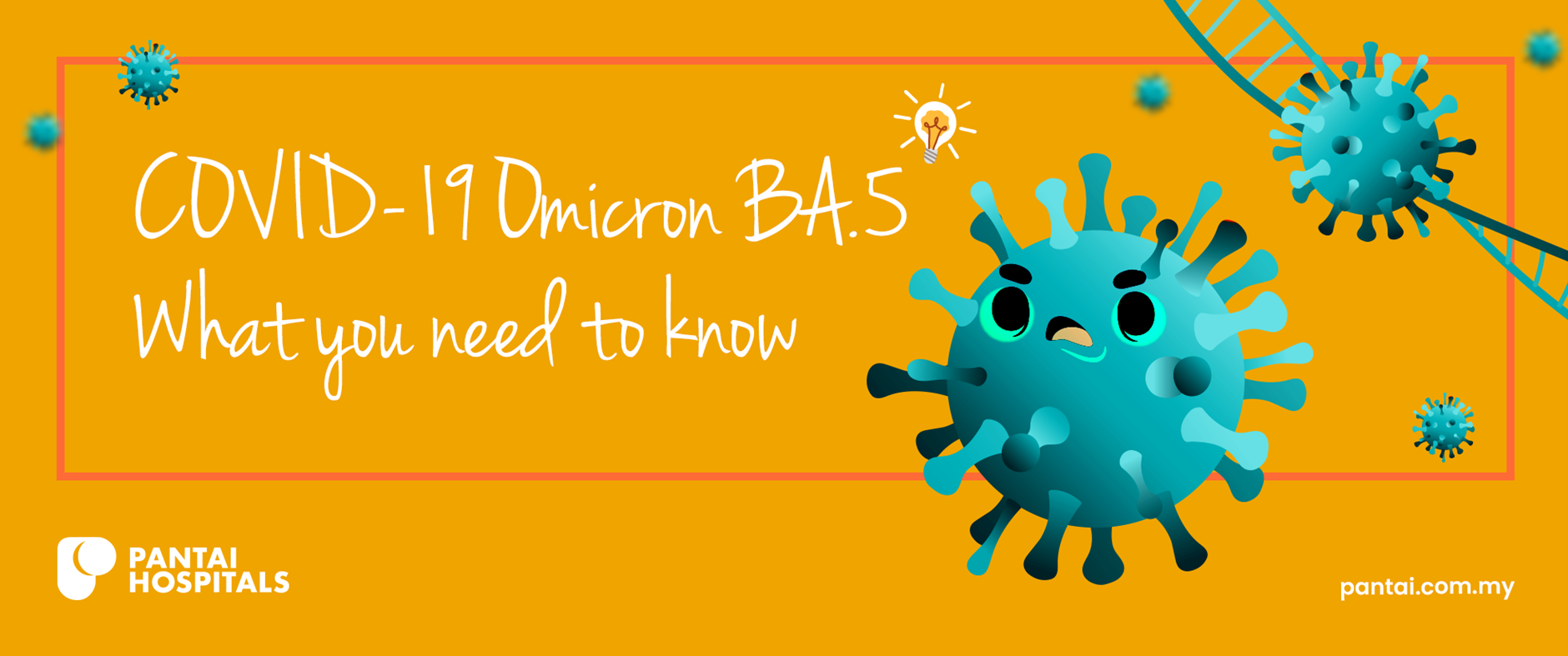Topics
Over time, viruses mutate; more often than not, these mutations will produce new variants. The world has observed the rapid evolution of the COVID-19 virus.
One of the most concerning variants of recent times is the COVID-19 Omicron BA.5.

What is COVID-19 Omicron BA.5?
COVID-19 BA.5 is a sub-lineage of the Omicron variant and was initially discovered in South Africa. According to the Centers for Disease Control and Prevention (CDC), this variant is highly contagious, although it does not appear to be associated with more severe outcomes than other COVID-19 variations and subtypes.
The virus typically transmits between people in close contact with one another. Small droplets can spread the virus from an infected person's mouth or nose when they sneeze, cough, speak, breathe, or sing.

What are the symptoms of the COVID-19 Omicron BA.5 infection?
The symptoms of Omicron BA.5 infection are similar to previous COVID-19 variants and subvariants. Common symptoms include:
- Fever
- Dry cough
- Fatigue
- Sore throat
- Headache
- Muscle pain
- Diarrhoea
- Skin rash
- Loss of taste and smell
How to prevent COVID-19 Omicron BA.5 infection?
Here are some ways that you can consider to reduce the risk of being infected by COVID-19 Omicron BA.5:
- Ensure that your COVID-19 vaccinations and boosters are up to date to protect yourself from severe disease and death
- Wear a medical-grade face mask when you are indoors, and physical distancing is not possible or in crowded areas
- Opt for open, well-ventilated spaces rather than enclosed ones. If indoors, keep windows open
- Maintain a safe distance (at least 1 metre) from others, even if they do not appear ill
- Cover your mouth and nose with a tissue or bent elbow when you sneeze or cough
Seek medical care if you have a fever, cough, and difficulty breathing. Seek immediate medical attention if the symptoms worsen.
References
- World Health Organisation, Coronavirus disease (COVID-19), WHO. Available at https://www.who.int/health-topics/coronavirus#tab=tab_3 [Accessed 15 August 2022]
- Centers for Disease Control and Prevention, What You Need To Know About Variants, CDC, 26 April 2022. Available at https://www.cdc.gov/coronavirus/2019-ncov/variants/about-variants.html?CDC_AA_refVal=https%3A%2F%2Fwww.cdc.gov%2Fcoronavirus%2F2019-ncov%2Fvariants%2Fdelta-variant.html [Accessed 16 August 2022]
- Berg S. Omicron and BA.5: Questions patients may have and how to answer. 16 August 2022. Available at https://www.ama-assn.org/delivering-care/public-health/omicron-and-ba5-questions-patients-may-have-and-how-answer [Accessed 1 September 2022]












